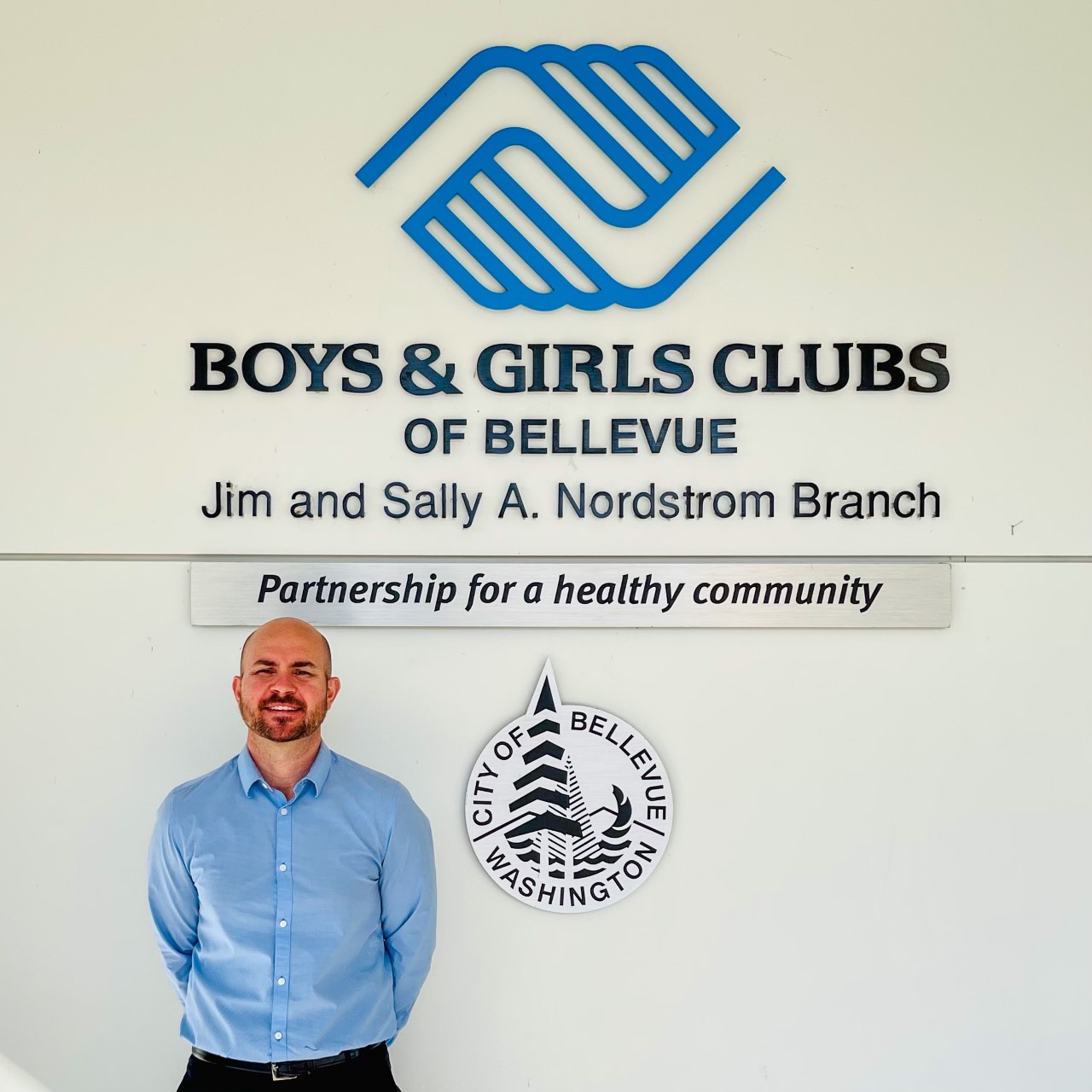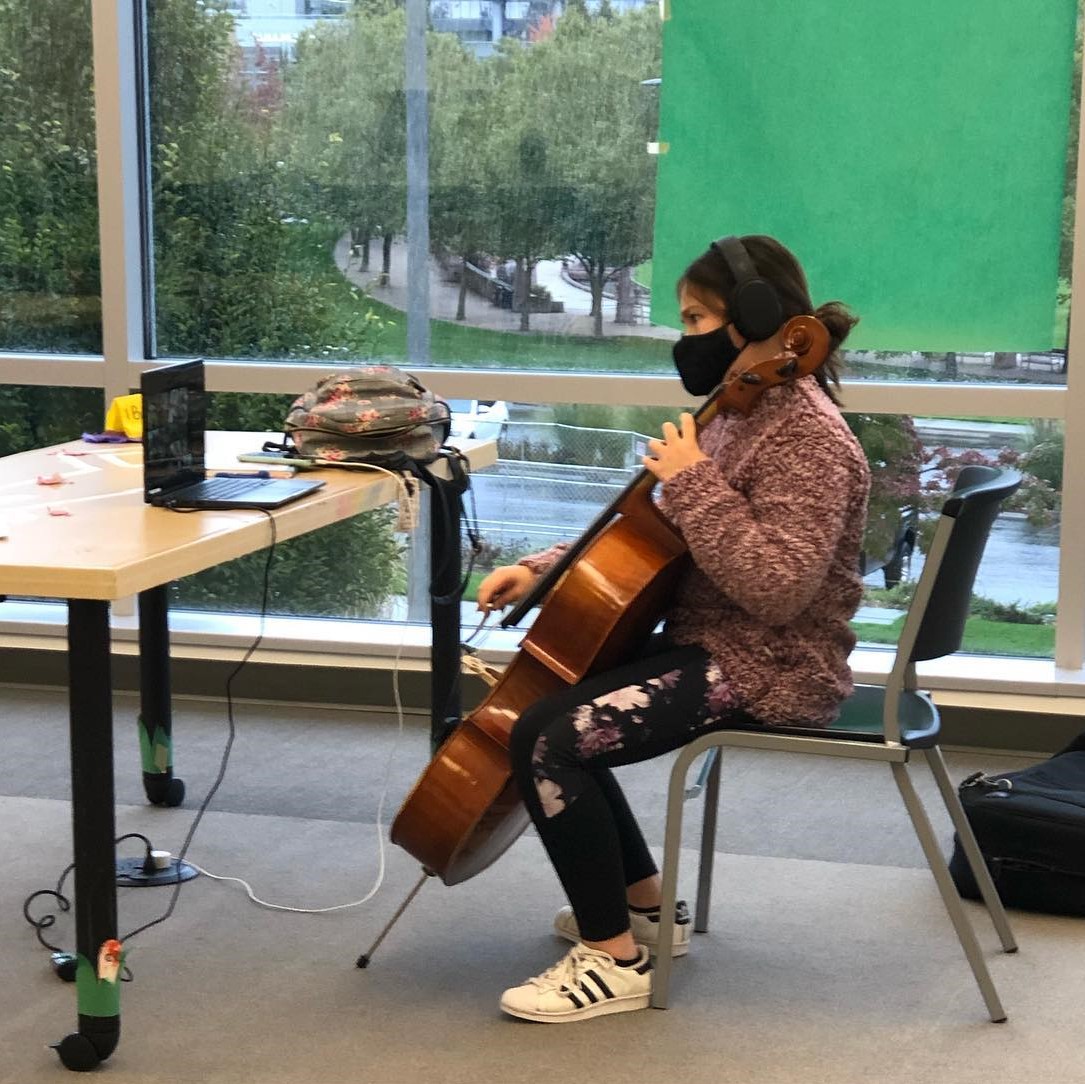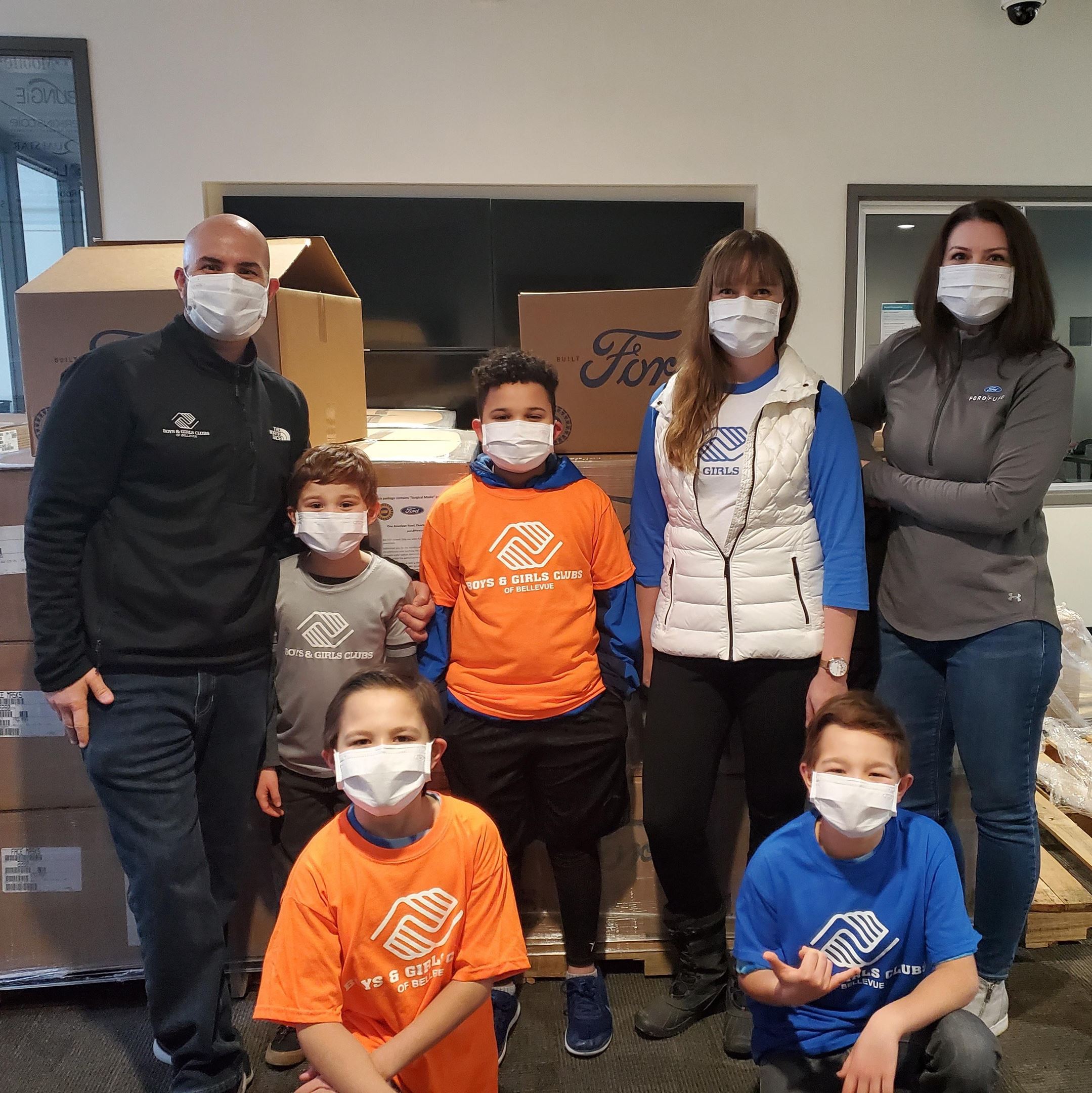Building Lifelines: Boys & Girls Clubs of Bellevue Continues to Serve
March 19, 2021 - by BDA Staff
Building Lifelines:
Boys & Girls Clubs of Bellevue Continues to Serve
 For Tim Motts, CEO and President of the Boys & Girls Clubs of Bellevue, his actions over the past year have been shaped and inspired by numbers.
For Tim Motts, CEO and President of the Boys & Girls Clubs of Bellevue, his actions over the past year have been shaped and inspired by numbers.
“From week one to week 53, our number one priority continues to be fostering a safe and constructive place for children and teens to learn and call a haven,” Motts said.
The numbers Motts has been seeing show just how critical his organization’s work is to the community. Ninety percent of the roughly 3,000 youth served by the Boys and Girls Clubs of Bellevue receive financial aid – and nearly 67% identify as Black, indigenous or a person of color. Over 40 of their kids are currently living in homeless shelters or encampments. Hunger and food insecurity are pervasive issues, as half of BGCB members qualify for free & reduced lunch compared to only 17% of Bellevue School District students.
The organization provides youth programs, essential services – and most importantly, a safe and welcoming space – for kids in our community. Across nine clubhouses and six school sites, BGCB serves 800 – 1,000 youth per day, providing hot meals, homework help and a safe place to find support.
Even as COVID-19 surged, the organization never closed its doors. In fact, it's been quite the opposite.
Normal operational hours were extended, with double the staff on board to handle an influx of kids needing services. A high percentage of families supported by BGCB programs are essential workers, Motts explained, and these parents and guardians were struggling to balance the demands of their work responsibilities while also caring for their kids, most of whom were no longer in school during the day.
 To respond, Motts and his team changed things up. Support staff were charged with new roles and responsibilities as caretakers, teachers, technologists and counselors. When Motts and his team recognized that schools would not be returning to live instruction until vaccines were widely available, his staff informed neighborhoods and schools that its facilities would be open and fully functional for the entire day. The clubs provided kids a safe place to get care, do homework, and have access to technology and reliable, high-speed internet for remote learning. The clubs also provided essential learning to kids with disabilities, a service that’s difficult to provide outside of schools.
To respond, Motts and his team changed things up. Support staff were charged with new roles and responsibilities as caretakers, teachers, technologists and counselors. When Motts and his team recognized that schools would not be returning to live instruction until vaccines were widely available, his staff informed neighborhoods and schools that its facilities would be open and fully functional for the entire day. The clubs provided kids a safe place to get care, do homework, and have access to technology and reliable, high-speed internet for remote learning. The clubs also provided essential learning to kids with disabilities, a service that’s difficult to provide outside of schools.
“A large portion of the kids under our watch have disabilities, and under normal circumstances, would typically engage with an aide who has the critical experience and expertise to manage those individual challenges,” Motts said. “But our commitment to stand behind these kids and teens has never wavered, even throughout this major adjustment period."
Motts and his team have also grappled with the stark decline of mental health, given the pandemic’s challenges. These impacts have been especially harsh on youth. Washington is ranked 43rd for adolescent mental health resources in the nation, and Motts urges folks to exercise more compassion and pay kindness forward, even in passing with strangers. Quarantine mandates and the increased risk of child abuse and neglect have only exacerbated the mental welfare crisis. Difficult but hopeful conversations about these dangers have taken root across the BGCB’s 11 open sites, as the tragic deaths of two kids reported within the last two weeks prompted sober discussions between faculty and students.
“Most importantly, we’ve been leading these conversations with empathy, trying to build meaningful relationships and connections that resonate with kids to avoid future tragedies,” Motts said.
Internally, coaches, volunteers and management across local Clubs have banded together with an urgent resolve to double down on the tools and outlets required to respond to mental health needs and positively impact youth.
“Two of our strongest advocates, Seattle Seahawks Assistant Defensive Backs Coach DeShawn Shead and Bungie CEO and Chairman Pete Parsons, are actually speaking on the topic next Tuesday at our leadership breakfast series,” Motts said. “We believe if we train and empower our staff to understand, identify and engage with youth who may be facing these challenges, the entire community will be more resilient as a whole.”
The pandemic’s financial impacts have also presented difficulties. For one, the opportunity gap has only further widened. One-fifth of Bellevue households earn less than $50,000 a year and nearly half of Bellevue students belong to a dual-employed or single-parent household. For the organization, escalated expenses to provide protective equipment, extended hours, and scholarships are strained by a 60% revenue reduction as a result of canceled events, capacity restrictions, and limited ways to fundraise. They’ve also lost staff capacity.
“Those that are still around, while dedicated lifesavers, are running on fumes,” Motts said. “We need to provide reinforcements and gear up to send in the cavalry as families and businesses prepare to reintegrate.”
 An aim to deepen collaboration lies at the crux of their COVID-19 recovery, Motts said. From his standpoint, current projects and the future agenda at BGCB are focused on deepening existing relationships to provide innovative solutions and meaningful support to the community.
An aim to deepen collaboration lies at the crux of their COVID-19 recovery, Motts said. From his standpoint, current projects and the future agenda at BGCB are focused on deepening existing relationships to provide innovative solutions and meaningful support to the community.
“If there has ever been a need to validate our work and mission, COVID-19 has shown that in spades,” Motts said.
Of course, the community’s support is also paramount. If you’re interested in getting involved or supporting their programs, visit the Boys and Girls Clubs of Bellevue website. And don't forget to see what programs may be available for the kids in your life too.
This blog is part of the Heart of Bellevue: our campaign to showcase local businesses while connecting you with stories of activity, creativity and recovery. Find out about our campaign and explore more of what’s happening around Downtown.





